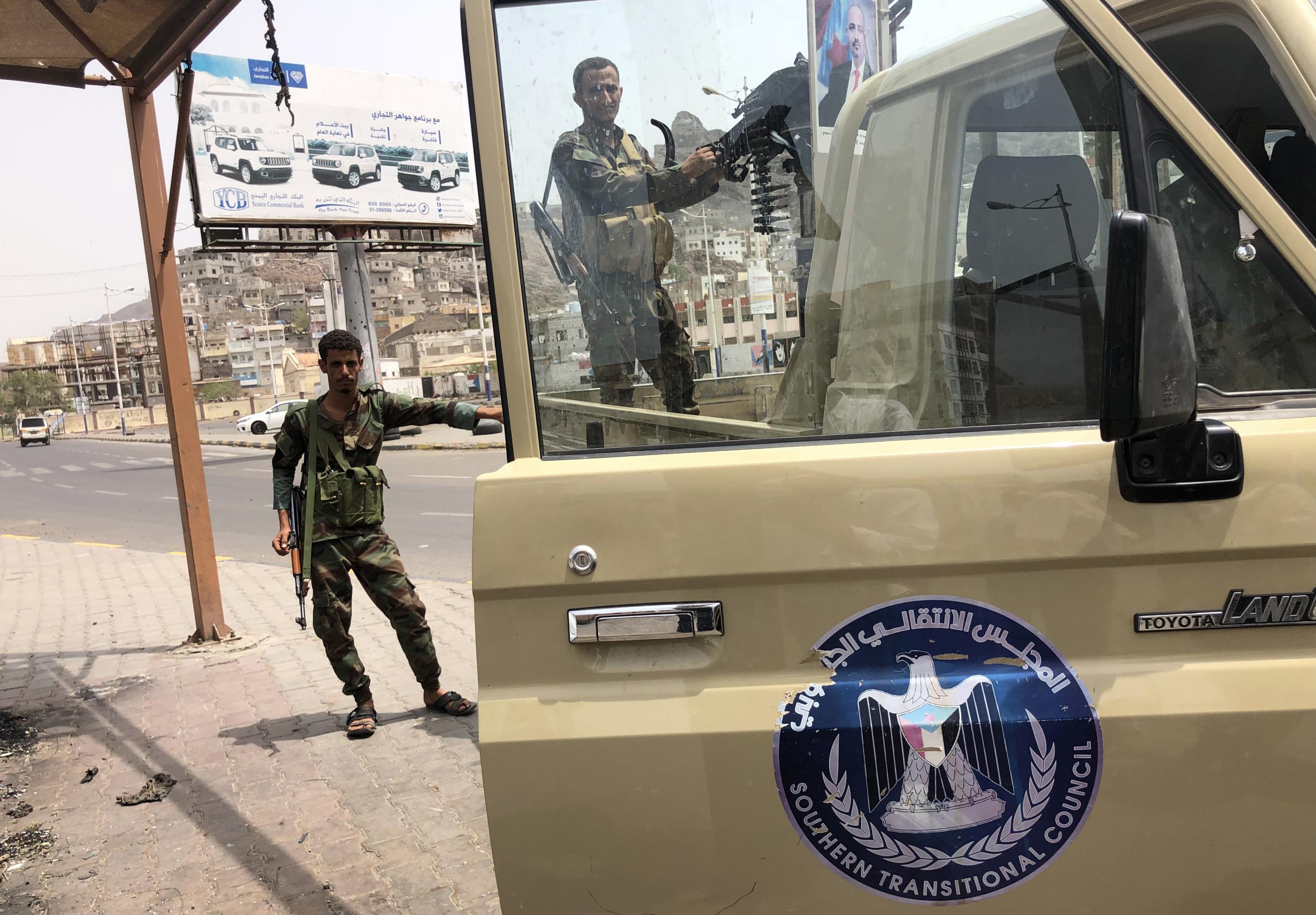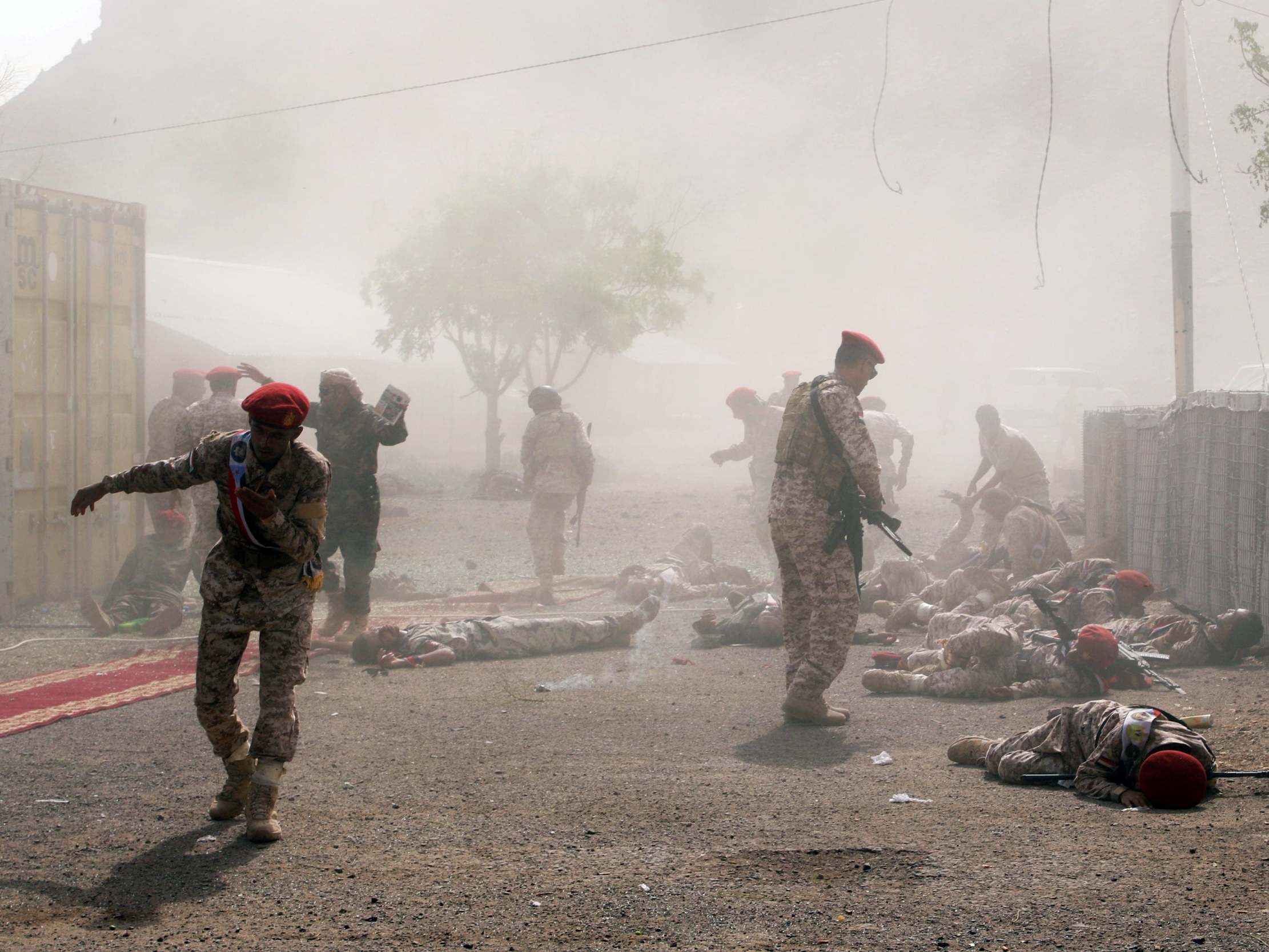‘No one will accept a unified Yemen’: Separatists refuse to back down on independence bid as UAE urges dialogue
Leaders in Yemen’s South Transitional Council agree to talks but maintain independence bid after seizing Aden amid violent clashes with recognised government forces

Your support helps us to tell the story
From reproductive rights to climate change to Big Tech, The Independent is on the ground when the story is developing. Whether it's investigating the financials of Elon Musk's pro-Trump PAC or producing our latest documentary, 'The A Word', which shines a light on the American women fighting for reproductive rights, we know how important it is to parse out the facts from the messaging.
At such a critical moment in US history, we need reporters on the ground. Your donation allows us to keep sending journalists to speak to both sides of the story.
The Independent is trusted by Americans across the entire political spectrum. And unlike many other quality news outlets, we choose not to lock Americans out of our reporting and analysis with paywalls. We believe quality journalism should be available to everyone, paid for by those who can afford it.
Your support makes all the difference.Leaders in Yemen’s southern separatist movement say they are “ready” for peace talks but will not abandon demands for an independent state, after their forces seized control of Aden city, the seat of the recognised government, in clashes with loyalist forces that left dozens dead.
Emirati-trained troops allied to the Southern Transitional Council last week captured army bases and the presidential palace in the strategic port city which serves as a temporary capital.
They clashed with Saudi-backed troops allied to the recognised president, Abedrabbo Mansour Hadi, ripping apart a Gulf coalition that was formed to fight the Houthi rebel group in the north of the country.
As Yemen teetered on the cusp of a second civil war, Abu Dhabi’s powerful crown prince met King Salman bin Abdelaziz and Crown Prince Mohammed bin Salman in Mecca on Monday, in an apparent effort to salvage the alliance.
Aidarus Zoubaidi, chief of the separatist Southern Transitional Council (STC), said late on Sunday that he was committed to a ceasefire in Aden and would join emergency talks in Riyadh.
However, Ahmed Bin Fareed, the movement’s representative in Europe, told The Independent that while they were keen to participate in peace talks they would not back down on calls that Yemen be divided, dashing hopes of a speedy resolution to the crisis.
“We accept to go to Riyadh for talks, we are still committed to the coalition, we respect President Hadi but we are sure he is controlled by members of the [Islamist] Islah Party,” Mr Fareed said on Tuesday.
“We will not back down from our demand of a state. No one will accept a unified Yemen. South Yemen was an independent state until very recently. We want a return to our country,” he added.
Thousands of southern separatists have received training and arms from the UAE as part of the effort to oust the Iran-backed Houthis who swept control of the country in 2014 ousting Mr Hadi.
The Houthi takeover of the country five years ago had prompted Saudi Arabia and its chief ally UAE to launch a bombing campaign to reinstate Mr Hadi, fearing encroachment of Iranian influence in the Gulf region.
However, fractures have started to show within the coalition, members of which have clashing agendas.
The southerners see a divided Yemen as the only future for the country and have called for a return to the borders of North and South Yemen, before the country was first unified in 1990.
The STC has also accused groups such as the Muslim Brotherhood-affiliated Islah, which backs Mr Hadi, of collaborating with the Houthis to scupper their aspirations. They point to a string of attacks on the STC’s forces, including a recent missile attack on a military parade near Aden which killed the group’s most senior commander, known by his nickname Aboul Yamama.
Mr Hadi’s government, meanwhile, has accused the UAE of backing a separatist “coup”.
To add to the confusion, Saudi-backed coalition warplanes hit separatist areas on Sunday and the coalition has vowed further attacks to dislodge southern fighters.
The UAE, whose crown prince rushed to talks with King Salman on Monday, meanwhile tried to downplay a rift with Riyadh, saying ties between the two Gulf allies remain strong and they would “adamantly confront” any powers that threaten regional security.
“The UAE and Saudi Arabia call on conflicting Yemeni parties to prioritise dialogue and reason for the interest of Yemen,” state news agency WAM quoted UAE crown prince Sheikh Mohammed bin Zayed al-Nahyan as saying after the meeting.
However, he stopped short of asking the southern fighters to cede control of the Yemeni port in favour of President Hadi’s government, a solution sought by Saudi Arabia.

The situation in Aden has calmed and civilian flights returned on Tuesday. However, the International Committee of the Red Cross warned that hospitals were in desperate need of supplies after 72 hours of heavy fighting left more than 70 dead.
It said many of the wounded were trapped during the clashes and could not reach health facilities, with some dying as a result. It added that some 200,000 were left without access to water.
There has been no movement of the separatist forces from the bases they seized.
Mr Fareed said that the eventual separation of Yemen was “inevitable” and there would be no peace until it happened.
“We believe if Saudi Arabia and the UAE really want to achieve stability in the region, they have to accept the aspirations of the people for an independent state. Ignoring it will only see more conflict,” he added.
Join our commenting forum
Join thought-provoking conversations, follow other Independent readers and see their replies
Comments